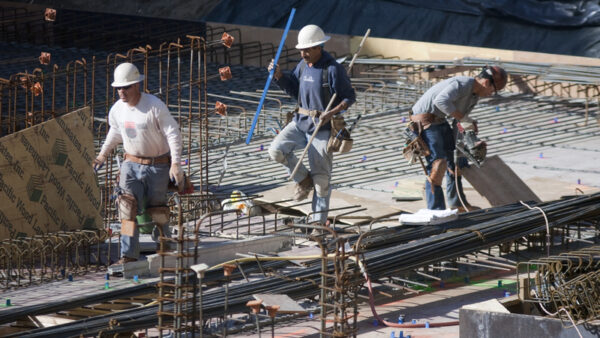Amnesty International has questioned Qatar’s commitment to ending the abuse of labourers on its construction sites in the run up to the 2022 World Cup finals. Â
Sherif Elsayed-Ali, the head of Amnesty’s department for refugee and migrant rights, said in a statement released by Amnesty that “urgent action is needed to ensure we do not end up with a World Cup tournament that is built on forced labour and exploitation”.Â
Amnesty has issued a report called “No Extra Time: How Qatar Is Still Failing on Workers’ Rights” that maintains that Qatar has failed to make significant reforms to its labour laws. Â
Six months ago, the Qatari government announced a series of changes to tackle exploitation and announced the end of the kafala system, whereby workers in effect lost their right to change jobs, or even leave the country. Â
The report says: “On closer inspection, the steps announced could not in any sense be described as an ‘abolition’ of the sponsorship system. The proposed reform would not remove an employer’s ability to block a worker from moving to another job. It would instead limit this power to the duration of a worker’s contract, which could be as long as five years. This is at best a minor improvement on the current system.”Â
Elsayed-Ali said: “Only a handful of the limited measures announced in May have even been partially implemented. Overall the steps taken so far are woefully insufficient.Â
“Despite making repeated promises to clean up its act ahead of the World Cup, the government of Qatar still appears to be dragging its feet over some of the most fundamental changes needed. By failing to act quickly to address the gaping holes in its human rights record, Qatar risks seriously damaging its credibility and calling into question its commitment to human rights.”
Amnesty is calling on the Qatari authorities to:Â Â
- Abolish exit permits
- Launch an independent investigation into the causes of workers’ deathsÂ
- Drop prohibitive fees for workers to launch legal action against employers
- Publish the names of exploitative recruiters and employers
- Grant domestic workers the legal protection taken for granted by workers elsewhere in the world.Â
Salah bin Nasser al-Ali, Qatar’s sports minister, told Associated Press: “Okay, it’s tough. It is something that really needs big, big work from us. But we are really tackling this problem face-to-face. We are not hiding.”Â
Emir Sheikh Tamim bin Hamad Al Thani, the ruler of Qatar, told CNN that he was “personally hurt” by the abuse of migrants in Qatar.
Read the full report here.Â
Qatari inspectors discovered over 800 violations at labour camps between March and August this year.






